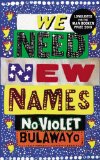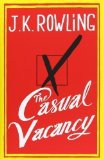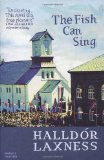 Shortlisted for the 2013 Booker Prize
Shortlisted for the 2013 Booker Prize
Five words from the blurb: shanty, dream, challenges, America, new
We Need New Names begins in Zimbabwe where 10-year-old Darling is living in a shanty town. She manages to stave off her hunger pangs by stealing guavas from the homes of rich, white people. Things look as though they might improve with the fall of white supremacy, but life for the children only becomes more harrowing. Eventually Darling manages to escape to America and the book shows how she adapts to life in a very different culture.
Unfortunately I had mixed feelings about this book. Darling’s narration was compelling, but I’m afraid the immigrant story has been done many times before and this book failed to add anything new to the genre. I found myself losing interest in Darling’s story once she’d left Africa and wish the story had concentrated on those left behind.
The book had many fantastic scenes and I especially liked the subtle way that the horrors the children faced were woven into the text. This innocence and simple acceptance of events kept the mood light and entertaining, despite the starvation, child pregnancies and murder.
The book also covered many bigger, global issues, but, although dressed in childhood charm, I occasionally felt that Darling’s comments were too wise for her age:
If you’re stealing something it’s better if it’s small and hideable or something you can eat quickly and be done with, like guavas. That way, people can’t see you with the thing to be reminded that you are a shameless thief and that you stole it from them, so I don’t know what the white people were trying to do in the first place, stealing not just a tiny piece but a whole country. Who can ever forget you stole something like that?
Overall this was a book of two halves. The first half was a refreshing new voice in African fiction; the second an average repeat of an over-told story. I’m not convinced it deserves a place on the Booker shortlist.

.
The thoughts of other bloggers:
….no one captures the simple wickedness of children better and this book is cruel and cutting in all the right places. Bookslingers
….the book could have been a bit more polished but everyone got something out of it… Bookfoolery
NoViolet Bulawayo has created a fictional world that stuns as it captivates. The Bowed Bookshelf









